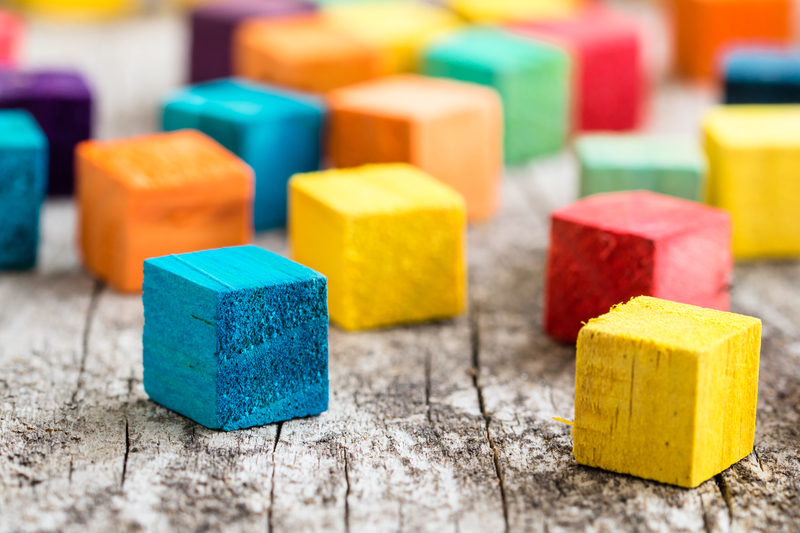Effortless Recycling: Tips for Families
Posted on 20/04/2024
In today's world, it is more important than ever to prioritize sustainability and take steps towards reducing our impact on the environment. With the increasing awareness of climate change and the urgent need to conserve resources, recycling has become a crucial part of everyday life. However, many families struggle with incorporating recycling into their daily routines. From confusion about what items can be recycled to the inconvenience of sorting through different materials, recycling can seem like a daunting task. But with some simple tips and strategies, recycling can be effortless for families. In this article, we will discuss ways that families can seamlessly incorporate recycling into their daily lives.
How to seamlessly incorporate recycling into the family's daily lives
1. Educate Yourself and Your Family
The first step towards effortless recycling is understanding what can and cannot be recycled. Many items that we unknowingly toss into the trash could actually be recycled and reused. Take the time to research your local recycling guidelines and educate your family on them as well. This will ensure that everyone knows what materials should be placed in the recycling bin instead of the garbage.
2. Set Up a Convenient Recycling System
One of the biggest hurdles for families when it comes to recycling is convenience. Sorting through various materials and making trips to the recycling center can feel like an added hassle in already busy schedules. To make things easier, set up a convenient system at home where recyclable items are easily accessible and properly sorted. For example, have separate bins or containers for paper, plastic, glass, and metal so that family members can quickly place them in the right container without having to think twice.
3. Make Recycling Fun for Kids
For kids, learning about recycling may seem boring or tedious. But by turning it into a fun activity, you can pique their interest and make them more willing participants in your family's effort to recycle. Consider creating a game out of sorting items or have them come up with creative ways to reuse materials before they are sent for recycling.
4.Have a Dedicated Composting Bin
Food waste and yard debris make up a significant portion of household waste that can be composted and used as fertilizer. Having a dedicated composting bin for these items not only reduces the amount of waste sent to landfills but also provides valuable nutrients for your garden. Involve the whole family in maintaining the compost bin and educate them on which food scraps can be added.
5. Repurpose Items Instead of Throwing Them Away
Before tossing items like clothes, toys, or furniture in the trash, think about ways they could be repurposed. Old t-shirts can be turned into cleaning rags, broken toys can be fixed or donated, and old furniture can be upcycled instead of being discarded. By finding new uses for things, you not only reduce waste but also save money by not having to constantly buy replacements.
6. Take Advantage of Community Recycling Programs
Many communities have recycling programs in place that make it easier for families to recycle effortlessly. For example, some cities have curbside pickup for recyclables or offer drop-off locations at convenient places like schools or community centers. Take advantage of these programs and make use of them regularly.
7. Consistently Encourage and Remind Family Members
Recycling may not come naturally to everyone in the family, so it's important to consistently encourage and remind them to recycle. This could include placing helpful reminders around the house, such as "Did you remember to recycle?" stickers near garbage cans. It is also essential to lead by example and ensure that everyone understands the importance of recycling for the environment.


The Pros of Effortless Recycling:
1. Reduces Waste: By recycling, we reduce the amount of waste sent to landfills, which helps protect our natural resources.
2. Prevents Pollution: Landfill sites produce harmful greenhouse gases that contribute to climate change. By recycling, we lower our carbon footprint and help improve air quality.
3. Conserves Resources: Recycling materials means less reliance on raw materials, which helps conserve natural resources.
4. Creates Jobs: The recycling industry creates jobs in areas such as collection, processing, and manufacturing of recycled goods.
The Cons of Effortless Recycling:
1. Can Be Costly: Setting up a convenient recycling system at home can be an additional expense for families.
2. Requires Effort: While the idea is to make recycling effortless, it still requires effort from family members to properly sort and dispose of recyclable materials.
3. Limited Materials Accepted: Depending on your local guidelines, there may be limited items that can be recycled, leaving some items still to be thrown in the trash.
4. Contamination Risk: If recyclables are not properly sorted, they can become contaminated and end up in landfills instead of being recycled.
Takeaways:
By educating yourself and your family, setting up a convenient system, making it fun for kids, and consistently encouraging and reminding family members to recycle, you can effortlessly incorporate recycling into your daily routine. Additionally, repurposing items and taking advantage of community recycling programs are also effective ways to reduce waste and contribute towards a more sustainable future.
Conclusion:
Recycling doesn't have to be a chore for families - with a little effort and some simple strategies, it can become an effortless part of daily life. By reducing waste, preventing pollution, conserving resources, and creating jobs, recycling has numerous benefits for both the environment and our communities. So let's all do our part in making recycling effortless for our families and help build a greener future for generations to come.
Latest Posts
Planet-Friendly Disposal Strategies
House Waste Removal Made Easy: Top 5 Tools
Hard Rubbish: Identification & Disposal Tips





